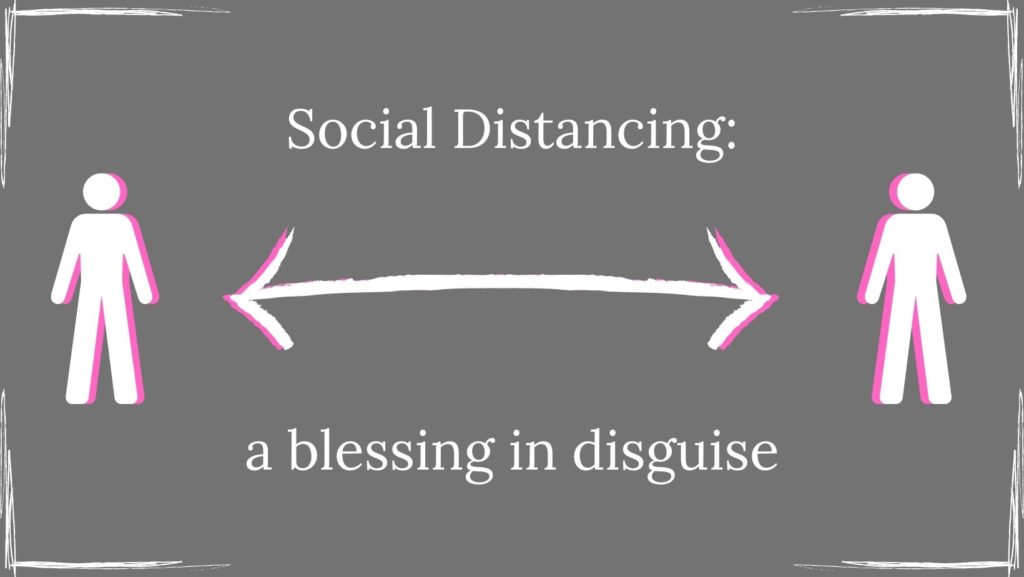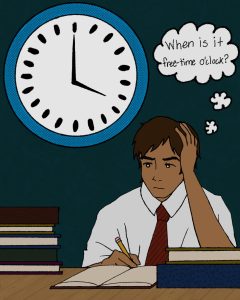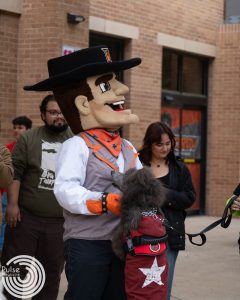Social Distancing: a blessing in disguise

You need four hugs a day for survival, according to family therapist Virginia Satir, but one in 54 people is opposed to such physical contact, according to the CDC.
People with autism spectrum disorder also have a difficult time with physical contact and are not always in a position to comfortably accept it. On Sept. 2, Pulse sent out a survey to Reddit’s autism communities to gauge the effect of the COVID-19 pandemic on the autistic community. Six people responded to the survey. Fifty percent of the respondents said that physical contact made them uncomfortable, and the other 50% said that their response depended on the situation.
Most respondents also explained that physical contact felt painful to them, while others said that it makes them feel uncomfortable or trapped. One respondent noted that they got “cold shivers down their spine,” when someone touched them. These feelings are often exacerbated by overstimulation.
According to Disabled World, overstimulation happens when neurodivergent people, those with autism, dyslexia, dyscalculia, epilepsy, hyperlexia, dyspraxia, ADHD, obsessive-compulsive disorder (OCD) and Tourette syndrome (TS) are bombarded by noises, experiences, sensations and activities. This overwhelms them and can cause them to have panic attacks or may require stimming or breaks. As one respondent said, “I have multiple small children who are all also either autistic or neurodiverse. I am constantly in sensory overload … It’s taken a huge toll on my mental health, specifically my anxiety.”
During the COVID-19 pandemic, the CDC created social distancing guidelines, which required people to stay at least 6 feet away from others and stay secluded if one had COVID-19-like symptoms. My sister, who gets out of the house more than I, has had a harder time with social distancing. I can tell that it has taken a toll on her. On the other hand, I, and other members of the autistic community, have been enjoying the space that the pandemic has provided. For example, I have felt more comfortable in general, but when people get closer than 6 feet, it tends to cause a lot of anxiety. In the Pulse survey, most respondents said that they too have enjoyed the relief that social distancing has brought them. Here are some of the responses:
“It has stopped unnecessary bumping from others, which is very uncomfortable to me, and also gives me more space, so I’m not so claustrophobic with so many people around.”
“I don’t have to interact as much, and when I do it’s more meaningful or controlled, like, over Zoom or with masks. If it’s over Zoom I can mirror other people for appropriate responses and see my own response. This causes less stress … I don’t have to mask my autism as much when wearing a mask, which again causes less stress.”
“Yes! I have way fewer interactions with complete strangers.”
The autistic community is not a monolith, and there is a whole range of experiences that weren’t collected in the survey.
Since the COVID-19 pandemic, a lot of social change has happened. In the case of the autistic community, this social change has not all been a negative experience; some change is positive. Accepting people who are reluctant toward contact is a positive outcome from the struggles that COVID-19 has caused. As public society starts going back to normal, permanently adopting social rule changes that accept different reactions to touch needs to be carried over to help neurodivergent people be more comfortable with the public.





